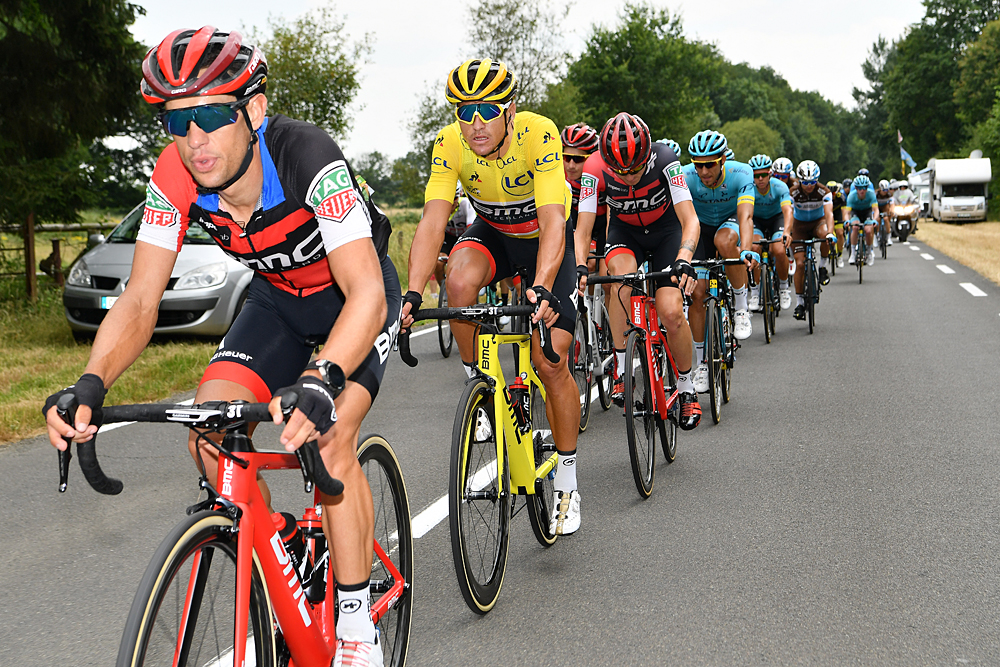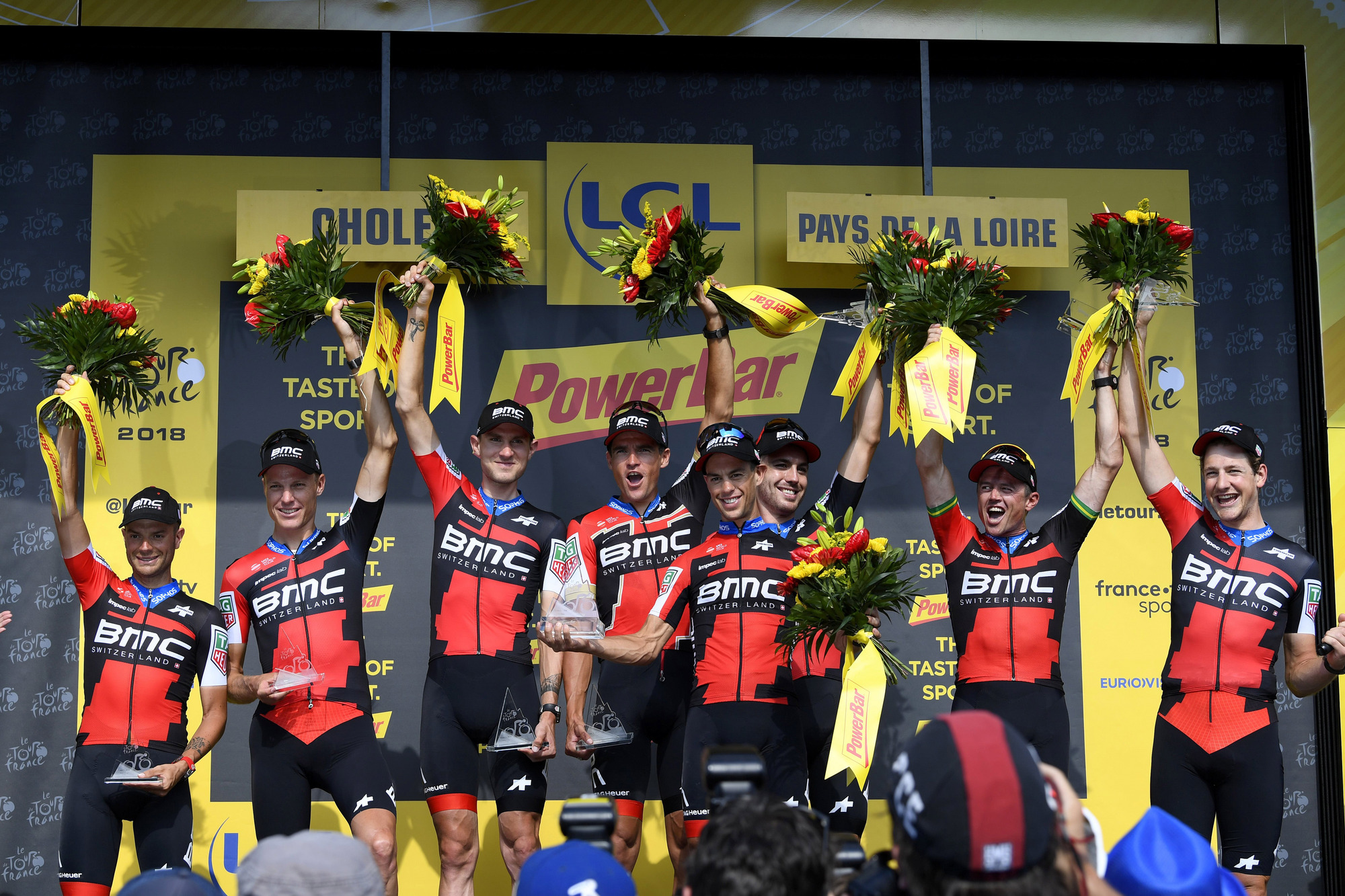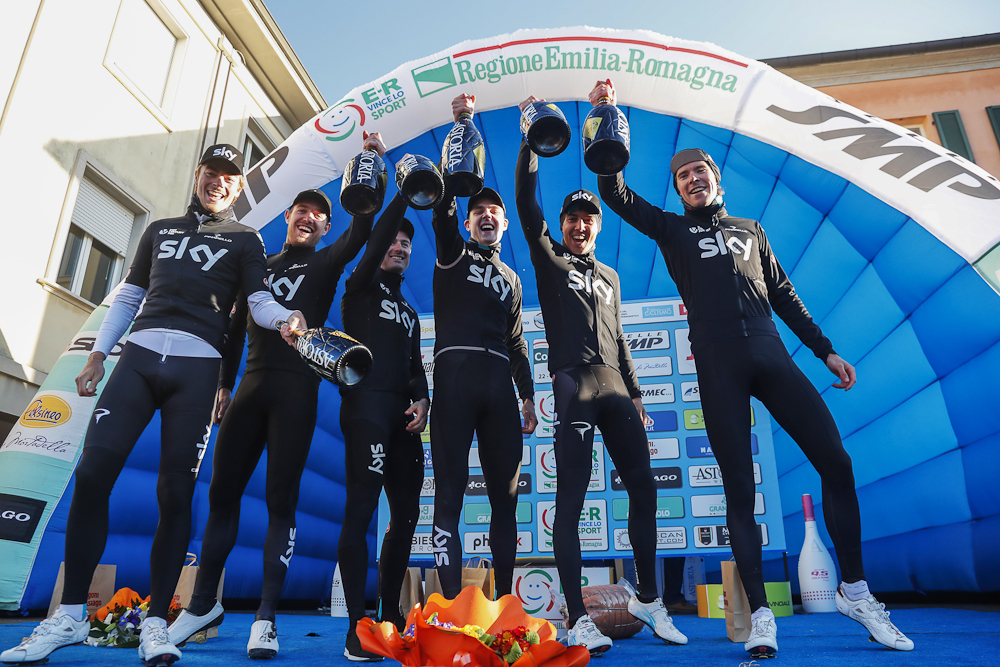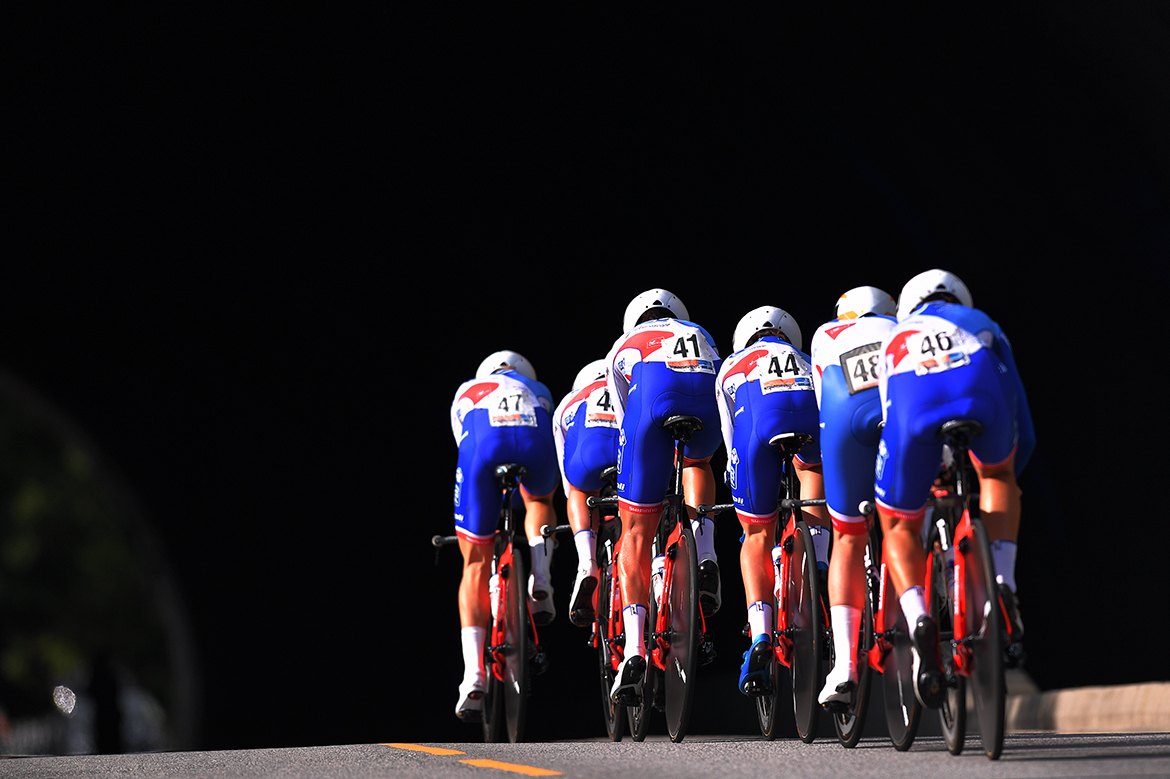Leading teams up in arms about planned 2020 UCI WorldTour reforms
Reduction to 15 WorldTour teams could kill off three current teams




Some of the biggest team's in the men's WorldTour are up in arms and ready to fight against proposed reforms to the structure of the sport's highest division, concerned that reduction from 18 to 15 WorldTour teams will kill off three existing team structures.
Cyclingnews has seen details of the proposals that were presented to the UCI Professional Cycling Council on June 13 and then explained in detail to the AIGCP teams association at a meeting before the Tour de France Grand Depart.
The new WorldTour proposals do not appear to improve the long-term business model of professional cycling, with the changes weakening the influence of the teams rather than generating new revenue. The reforms are part of wider, long-running power struggle between the teams - that rely solely on sponsorship, Tour de France organiser ASO - who has always defended their business interests and television income, and the slow-moving bureaucrats of the UCI.
Cyclingnews has been told by one team manager who wished to remain anonymous, that the UCI initially leaked a much more aggressive and more radical proposal drawn up by ASO before formally presenting their design at the Professional Cycling Council held on June 13. This was apparently an attempt to scaremonger the teams to accept the UCI's proposal. However, the UCI's way of working and the proposals have only united the teams - even the French squads who traditionally toe the line to ASO's strategy.
Details of the new UCI WorldTour
The new UCI WorldTour would begin in 2020 and consist of 15 WorldTour teams (down from 18), with a second division of ProTeams and a third division of other teams who ride the lesser races on the five UCI continental circuits.
There would still be 185 days of WorldTour racing on the calendar but with the big one-day Classics and other races also part of a new One-Day Series, which aims to distinguish between the Classics and stage races. A second tier of races (HC and category 1) would be grouped into a Pro Series, with the 15 WorldTour teams obliged to race 50 days per year in the lower series.
In compensation, the WorldTour teams would only be obliged to ride the three Grand Tours and the One-Day Series. Participation in the other WorldTour races would be voluntary with a draft system activated if less than 10 teams sign up for the WorldTour races. This could affect the number and quality of the teams in the newer WorldTour races such as the Tour of Guangxi, the RideLondon-Surrey Classic and the Tour of California.
Get The Leadout Newsletter
The latest race content, interviews, features, reviews and expert buying guides, direct to your inbox!
The WorldTour races will still include 22 teams, with the 15 WorldTour teams automatically invited. Five other places would be awarded to the ProTeams based on sporting merit, calculated via a rolling 12-month ranking. Race organisers will be able to issue two wild card invitations to whomever they like amongst the ProTeams.
The five so-called merit-based slots and the wild cards will only be revealed two months before the race (May in the case of the Tour de France). However, the AIGCP is determined to fight this proposal and want the places awarded based on a ProTeam ranking from the season even if this could be affected by rider transfers.
The 2019 WorldTour will remain largely the same, only reducing in the number of WorldTour teams if one of the current 18 teams fold or fail to meet the annual financial, ethical and sporting criteria. However, the major changes for 2020 will be influenced by rider and team performances during the 2019 season, with results and points deciding who secures a place in the 15-team WorldTour and who is relegated to the new ProTeams second division.
De facto relegation from WordlTour
The current WorldTour teams that fail to qualify for the 2020 WorldTour places face a de facto relegation to the second-division ProTeam level even if they have long-term WorldTour sponsorship in place. Teams are concerned that this relegation to the second division could kill off three healthy teams because it could allow sponsors and riders to rip-up their existing contracts. Sponsors could offer lower sponsorship or refuse to be part of the lower Pro Series, while riders could head to other teams.
The new 2020 WorldTour teams would have to have a minimum budget. This has still to be determined but is likely to be around 15 million Euro. Plans for a salary cap are also under discussion but are not part of the initial reform. Salary caps are notoriously difficult to enforce on a global scale and in a sport that includes possible relegation and promotion based on sporting merit.
The WorldTour licences again have a maximum duration of 4 years but the duration is based on the team ranking. The top five teams would be given a four-year WorldTour licence, giving them some security, but teams ranked 10-15 would only have a licence for two years. The UCI also wants to tie-in licences to the duration of contracts with the main sponsors.
The contrasts in the new rules could mean that a well-run, sponsored team miss out on a place in the 2020 WorldTour simply due to a lack of points, while the two-year WorldTour licences could create a glass ceiling so it is impossible for a team to return to the WorldTour after a just one season as a ProTeam. The minimum WorldTour team budget could also mean that a ProTeam secures promotion to the WorldTour but then is unable to afford to step up the WorldTour.
The UCI did not wish to comment on the reforms when contacted by Cyclingnews but has apparently tried to play down the teams' concerns and will continue to discuss with stakeholders during the summer.
The UCI hopes to appease the teams and thrash out a reform in time for it to be approved at the next UCI Professional Cycling Council and then the Management Committee meeting in late September at the world road race championships in Innsbruck, Austria.

Stephen is one of the most experienced member of the Cyclingnews team, having reported on professional cycling since 1994. He has been Head of News at Cyclingnews since 2022, before which he held the position of European editor since 2012 and previously worked for Reuters, Shift Active Media, and CyclingWeekly, among other publications.